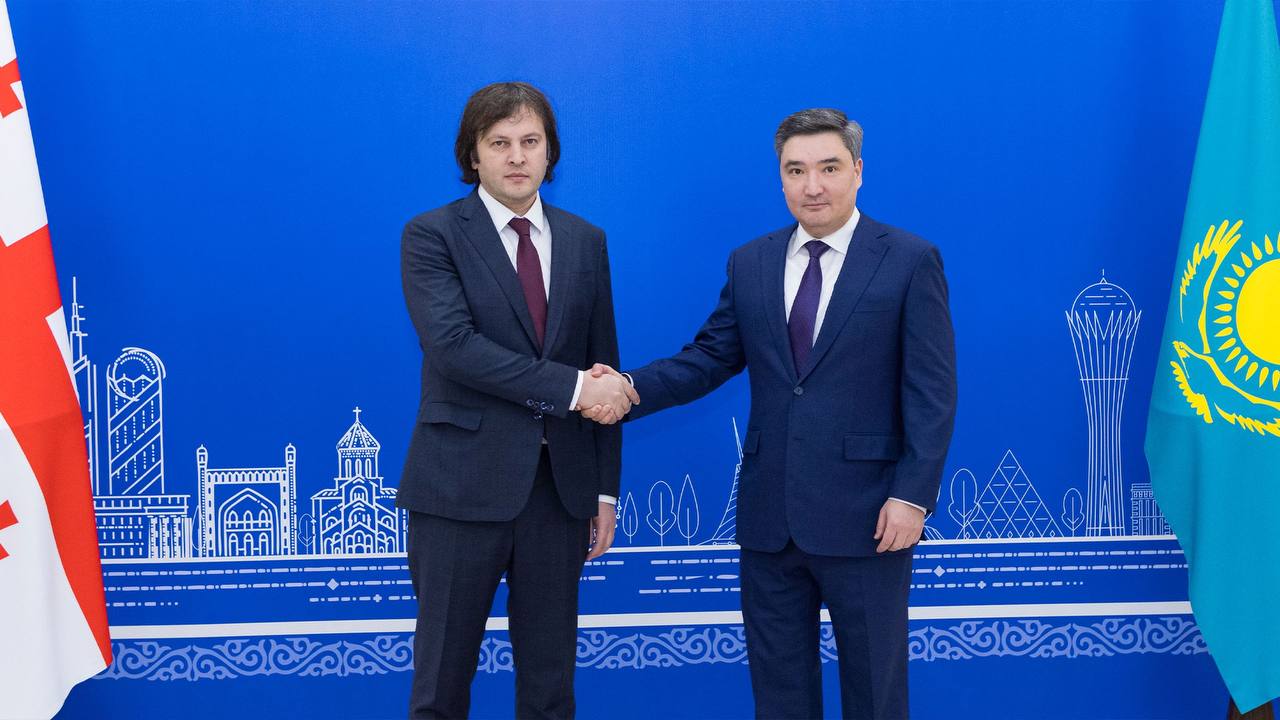ASTANA, Kazakhstan, February 5. Kazakhstan and Georgia have set their sights on a gradual increase in oil shipments via the Baku-Tbilisi-Ceyhan (BTC) pipeline, with plans to raise volumes from 1.4 million tons of Kazakh oil last year to 2.2 million tons annually, Trend reports via the press service of the Prime Minister of Kazakhstan.
The discussions were held during a meeting between Kazakhstan’s Prime Minister Olzhas Bektenov and Georgia’s Prime Minister Irakli Kobakhidze, who is in Kazakhstan for an official visit.
The two leaders addressed a range of bilateral cooperation issues, focusing on expanding trade and economic ties, enhancing transportation and logistics collaboration, and exploring opportunities in oil and petroleum product transportation, digital technologies, agriculture, tourism, and other sectors.
“This is my first and undoubtedly important official visit to Kazakhstan, aimed at strengthening economic and cultural relations. Today, our countries have achieved significant progress in various areas of cooperation. We are keen to continue developing a comprehensive partnership with Kazakhstan,” Kobakhidze said.
The prime ministers also discussed further collaboration on transporting oil and petroleum products to global markets.
A promising area for future growth is agricultural cooperation. The volume of trade in agricultural products between the two nations grew by 12.3 percent in 2024, reaching $71.2 million. Kazakhstan has the potential to increase exports of flour, grains, vegetable oils, pasta, lamb, beef, dairy products, and confectionery to Georgia.
Both sides highlighted shared interests in workforce development and scientific research to support the agro-industrial sector, including joint studies. An example of successful business cooperation is the joint project between Kazakhstan’s QVM Technology LLC, Ordabasy Group, and Ervira companies, alongside the Georgian Olive Georgia company, to experiment with planting olive tree saplings in Kazakhstan.
The two leaders also discussed digitalization and tourism exchanges.
Following the talks, the prime ministers reaffirmed their commitment to strengthening trade, economic, and cultural ties between Kazakhstan and Georgia.
To note, the Baku-Tbilisi-Ceyhan pipeline, which stretches over 1,768 kilometers, has a daily capacity of 1.2 million barrels of oil. The pipeline was officially opened on July 13, 2006, in Ceyhan.







